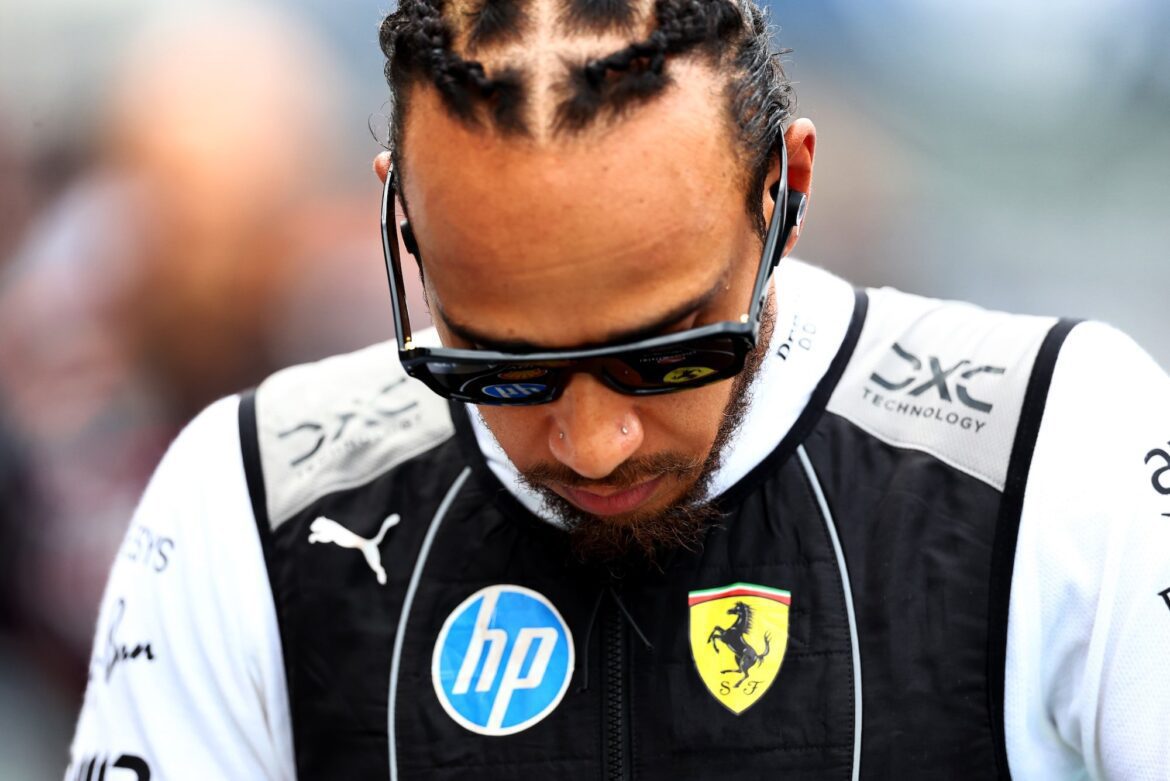Lewis Hamilton has openly criticized the current state of the International Automobile Federation (FIA), particularly in light of the recent amendments to the International Sporting Code. The Ferrari driver voiced his dissatisfaction with the changes introduced by the governing body.
Recently, the FIA made significant revisions to the controversial Appendix B of the International Sporting Code, which initially sparked outrage and disbelief among many within the motorsport community. However, following a reassessment of the code, the FIA released an updated version. On Wednesday, the FIA announced a series of modifications to Appendix B. One of the most noteworthy adjustments was the reduction of monetary fines related to the use of explicit language by drivers. Another pivotal change empowered race stewards to dismiss penalties for certain infractions.
When Hamilton was asked about these changes, he admitted, “I hadn’t seen the changes. I don’t know where this is coming from. It’s ridiculous.” He continued to express his frustration, stating, “Nothing I say will make a difference.”
Hamilton has a history of standing up against the FIA and its president, Mohammed Ben Sulayem. A notable instance occurred when the federation attempted to enforce new regulations regarding the wearing of jewelry by drivers. In response, Hamilton attended an event adorned with multiple necklaces, watches, and rings to protest the proposed rules.
Regarding his current feelings towards the FIA, Hamilton did not hold back: “It feels a bit chaotic there at the moment.” The remarks from the seven-time Formula 1 champion illustrate a period of tension between the driver and the regulatory body overseeing the sport.
The FIA’s recent revisions to the International Sporting Code come amid ongoing discussions about the need for more flexible and modern regulations in motorsport. As the world of racing continues to evolve, the governing body faces mounting pressure to adapt its rules to better suit contemporary standards and expectations.
Appendix B, which addresses various behavioral guidelines for drivers and teams, has long been a point of contention. The original version of Appendix B was met with backlash, leading the FIA to reconsider its approach and implement changes aimed at creating a more reasonable set of regulations.
The decision to lower fines related to the use of inappropriate language is particularly significant in today’s context, where the sport is increasingly scrutinized for its conduct both on and off the track. Drivers are often seen as role models, and their behavior can have a profound impact on fans and aspiring racers alike. The FIA’s move to revise these penalties reflects an understanding of the cultural shifts surrounding language and public perception.
Furthermore, the empowerment of race stewards to dismiss certain penalties signifies a shift towards a more lenient approach, allowing for discretion in decision-making. This change could lead to a more dynamic racing environment, where the emphasis is placed on the spirit of the sport rather than strict adherence to rules that may not align with current values.
Hamilton’s critique of the FIA is not merely a reflection of his personal frustration; it also highlights broader issues within the realm of motorsport governance. As one of the sport’s most prominent figures, Hamilton’s voice carries significant weight, and his concerns resonate with many fans and fellow drivers who share similar sentiments regarding the FIA’s regulatory practices.
The relationship between drivers and governing bodies has always been complex. While regulations are essential for maintaining safety and fairness in racing, the implementation of these rules can often feel disconnected from the realities faced by drivers on the track. Hamilton’s outspoken nature serves as a reminder that drivers are not just competitors; they are also advocates for their rights and the integrity of the sport.
In previous instances, Hamilton has used his platform to address various issues, including diversity and inclusion within motorsport. His activism extends beyond the track, as he seeks to promote positive change within a sport that has historically been slow to adapt to social progress. This multifaceted approach to his role as a driver and a public figure further underscores the importance of open dialogue between athletes and regulatory bodies.
The FIA’s ongoing evolution and the response from drivers like Hamilton will likely shape the future of motorsport governance. As the landscape of racing continues to grow and change, it will be crucial for governing bodies to remain responsive to the needs and concerns of drivers, teams, and fans alike.
Ultimately, the tension between Hamilton and the FIA may serve as a catalyst for further reform within the organization. The criticisms voiced by Hamilton could lead to more in-depth discussions about the nature of regulations in motorsport, prompting the FIA to re-evaluate not just Appendix B, but the entire framework of the International Sporting Code.
The world of Formula 1 is no stranger to controversy, and the discussions surrounding the FIA’s regulatory changes are just one of many issues that will continue to evolve. As fans and stakeholders closely monitor these developments, the hope is that the sport will move towards a more inclusive and modern approach to governance that reflects the values of its participants and audience.
In conclusion, the recent changes to the FIA’s International Sporting Code, particularly concerning Appendix B, have sparked a renewed dialogue about the relationship between drivers and the governing body of motorsport. Lewis Hamilton’s critical stance highlights the need for ongoing communication and reform, ensuring that the sport remains relevant and responsive to the needs of its community. The future of motorsport governance will depend on how effectively the FIA can navigate these complexities while maintaining the integrity and excitement of racing.
